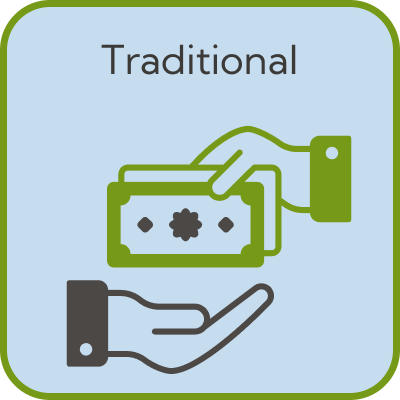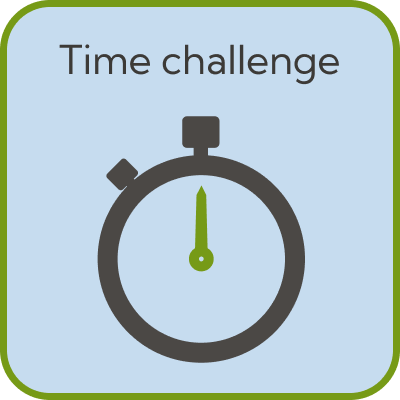Fundraise by participating in Self-organised longest balance challenge!
Self-organised longest balance challenge
Imagine testing your balance and concentration skills while raising funds for a cause close to your heart. The "Self-Organised Longest Balance Challenge" offers you this unique opportunity. In this activity, you challenge yourself to maintain balance on a balance board, slackline, or even one leg, for as long as possible. Friends, family, and sponsors can pledge donations based on how long you can hold your balance, making the event a thrilling spectacle and a fantastic way to generate charitable contributions.
This event is a superb idea for fundraising because it requires minimal setup but has a high engagement factor. People are naturally drawn to challenges that test human limits, and balance is a skill that intrigues many. Additionally, since participants control their environment and timeframe, it makes participation flexible and inclusive. You can host the challenge in a public park, your backyard, or even a community hall, which helps in attracting a larger audience and increasing awareness for the chosen charity.
To organise this event successfully, choose a safe and suitable location first. Make sure the surface is flat and stable to prevent accidents. Inform your potential sponsors about your challenge details, including the cause, the date, and how they can pledge or donate. Use social media platforms to broadcast live or post updates of your balance attempt, creating excitement and encouraging real-time donations. Safety is paramount, so have someone nearby to supervise and assist in case of any issues.
The most suitable Sponsivity challenge types for the "Self-Organised Longest Balance Challenge" are the Time Challenge and the Wager Challenge. The Time Challenge is perfect as sponsors can donate based on how many minutes or hours you keep your balance. The longer you balance, the more funds you raise. Alternatively, the Wager Challenge could make things more exciting by setting a high benchmark for your balance time, and if reached or surpassed, triggers a larger lump-sum donation from sponsors who accept the wager.
Additionally, consider incorporating the Challenge Chain model to escalate the event's impact. Once you complete your challenge, nominate friends or family members to take on the challenge next, expanding the fundraising effort's reach and perhaps turning it into a viral campaign for your cause.
Utilizing these strategies and Sponsivity’s challenge types, your balance challenge can go beyond a mere test of physical endurance to become a significant charitable endeavor.

Sponsivity offers you several ways to raise for Self-organised longest balance challenge


💪 Physical Endurance – A Test of Strength & Stamina for Charity
Physical endurance challenges are some of the most demanding and rewarding ways to raise money for charity. These events push fundraisers to their limits, whether through long-distance running, cycling, swimming, or multi-hour challenges, making them highly compelling for donors. The harder the challenge, the more supporters are inspired to give.
Why Physical Endurance Works for Fundraising:
- High Engagement: Donors love to support fundraisers who commit to extreme endurance challenges, seeing their dedication as a strong reason to give.
- Scalable & Inclusive: Endurance events can range from personal step challenges to Ironman triathlons, making them accessible for all fitness levels.
- Long-Term Fundraising Potential: The extended training and preparation period allow fundraisers to build momentum and keep donors engaged.
- Great for Time & Distance Challenges: Fundraisers can challenge themselves to beat a time, achieve a distance, or push beyond their limits for charity.
Examples of Physical Endurance-Based Fundraisers:
- Marathon or Ultra Run: “Help me raise £2,000 as I take on my first 100K ultra-marathon!”
- Long-Distance Cycle Challenge: “I’m cycling 1,000 miles across the UK for charity—sponsor me per mile!”
- Extreme Fitness Challenge: “I’m doing 24 hours of non-stop exercise—every donation pushes me further!”
Physical endurance fundraisers inspire, challenge, and motivate, creating an unforgettable experience for participants and a powerful reason for supporters to donate.
Set bespoke rewards that suit physical endurance
- Playlist pick - any song of your choice repeated 3 times on my playlist!
- Photo eating your chosen race snack (max 50g!)
- 20 press-ups after the finishline
🧠 Mental Challenge – Pushing Limits for a Good Cause
Mental challenges test focus, resilience, and determination, making them a unique and engaging way to fundraise. These challenges often involve problem-solving, endurance under pressure, or personal restrictions, such as memory feats, puzzle marathons, or digital detoxes. Fundraising through mental challenges allows participants to showcase their mental strength and discipline, inspiring supporters to donate.
Why Mental Challenges Work for Fundraising:
- Highly Inclusive: Unlike physical challenges, mental challenges can be attempted by anyone, regardless of fitness level.
- Great for Social Engagement: Challenges like chess marathons, escape room events, or language-learning goals are easy to share and track online.
- Endurance & Dedication: Tasks that test patience and willpower—like 24-hour challenges—demonstrate commitment, motivating donors to give.
- Unique & Entertaining: Creative challenges stand out, making them highly shareable on social media and drawing attention to the cause.
Examples of Mental Challenge-Based Fundraisers:
- Memory Challenge: “I’m memorizing 500 digits of Pi—sponsor me to support dementia research!”
- Endurance Puzzle Challenge: “Help me complete 10,000 Sudoku puzzles in a month for charity!”
- No-Talking or Digital Detox Challenge: “Support my 48-hour silent retreat—every donation helps my cause!”
Mental challenges showcase creativity, discipline, and perseverance, making them a fun and inspiring way to raise money while pushing personal limits.
Set bespoke rewards that suit mental challenge
- Join me in my challenge for 1 day
- Get defeated by me at chess online during the challenge
📅 Self-Organised – Fundraising on Your Terms
Self-organised fundraising challenges put you in control, allowing fundraisers to create a challenge that’s unique, personal, and tailored to their passions. Unlike organised events, self-organised challenges offer complete flexibility—whether it’s a solo endurance test, a creative personal challenge, or a community-driven activity.
Why Self-Organised Challenges Work for Fundraising:
- Full Flexibility: Choose the activity, location, and timing that works best for you, making fundraising accessible and achievable.
- Personal & Meaningful: Custom challenges allow fundraisers to connect with their audience by choosing something significant to them.
- Low-Cost & Inclusive: Without the need for event entry fees or logistics, anyone can participate, making it easy to involve family, friends, or colleagues.
- Perfect for Challenge Chain & Wager Models: Self-organised challenges can inspire others to join in, spreading the impact through viral nominations.
Examples of Self-Organised Fundraisers:
- Personal Running Challenge: “I’ll run 5K every day for a month—support my journey!”
- DIY Fitness Marathon: “I’m doing 1,000 push-ups in a day—every donation pushes me further!”
- Creative Challenge: “I’ll cycle across the country dressed as a superhero—help me hit my fundraising goal!”
Self-organised challenges allow fundraisers to turn their creativity, passions, and dedication into real impact, making it a powerful and accessible way to raise money for a cause.
Set bespoke rewards that suit self-organised event
- Rename the challenge in your honour
- Bring home-baked cookies to the finishline